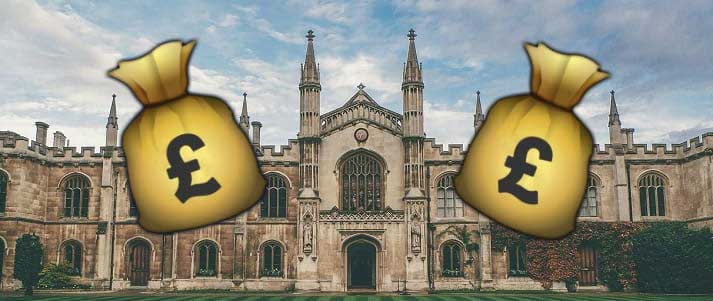The government is now offering up to £11,222 in Postgraduate Loans to English master's students looking to study at a UK university. But are you eligible for the loan?

Unsurprisingly, the Postgraduate Loan (also known as the Master's Loan) comes with its fair share of small print that can be hard to get your head around at first.
There's a lot of info to take in, but luckily we've done the hard work for you by simmering it all down to the cold hard facts.
So, if you're considering doing a master's degree now or in the future, or you're already on a postgrad course, read on to find out exactly what funding is on offer, and whether the Postgraduate Loan is right for you.
What's in this guide?
- Eligibility for Postgraduate Student Loans
- The cost of studying a master's degree
- How much is the Postgraduate Loan?
- How is the Postgraduate Loan paid?
- Repaying your Postgraduate Loan
- Can you get a Postgraduate Loan if you already have a Student Loan?
- How to apply for the Postgraduate Student Loan
- Is the Postgraduate Master's Loan worth it?
- Alternatives to the Postgraduate Loan
Eligibility for Postgraduate Student Loans

Credit: astarot – Shutterstock
If you meet the following criteria, you should be eligible for a Postgraduate Loan:
- You're a UK or EU citizen who has been living in the UK for the past three years or more
- You 'normally' live in England, not just for the purpose of studying
- You're under the age of 60
- This your first master's or equivalent degree (excluding postgraduate diplomas or PGCEs)
- You're applying for a full master's course (as opposed to a graduate diploma or equivalent)
- You are applying to study at a UK university (whether in England, Northern Ireland, Scotland, Wales)
- You're up to date with your existing Student Loan repayments.
Remember that you'll get your loan from the Student Finance body in the part of the UK you're from, not the country you're studying in.
Note that there are some exceptions to these rules, so it's always worth getting in touch with Student Finance England to double-check your eligibility. For instance, if you previously received a Master's Loan but dropped out of your course due to illness, you'd still be eligible a second time around.
There are also several additional conditions on which your application will be judged – we've just kept it simple by listing the main criteria. See the full details here.
Cost of tuition fees for master's degrees

The cost of master's courses in the UK varies depending on the type of course and university. Remember, master's degrees can be taught or research-based, and that's before you even consider the different costs associated with different subjects and universities.
Master's degrees can cost as little as £4,900 a year to well over £30,000, and it's these huge outliers that mean the average cost (according to UCAS) is about £11,000 a year – a tad more than the maximum loan amount.
However, it's worth noting that this financial support isn't just a Tuition Fee Loan – it's a Maintenance Loan, too (to help cover living costs). Don't just look at the amount available and think "oh, it covers my tuition, that's great" – you'll want to have some leftover to live on.
To find out exactly how much your course costs, check out your university's website.









0 Comments:
Post a Comment